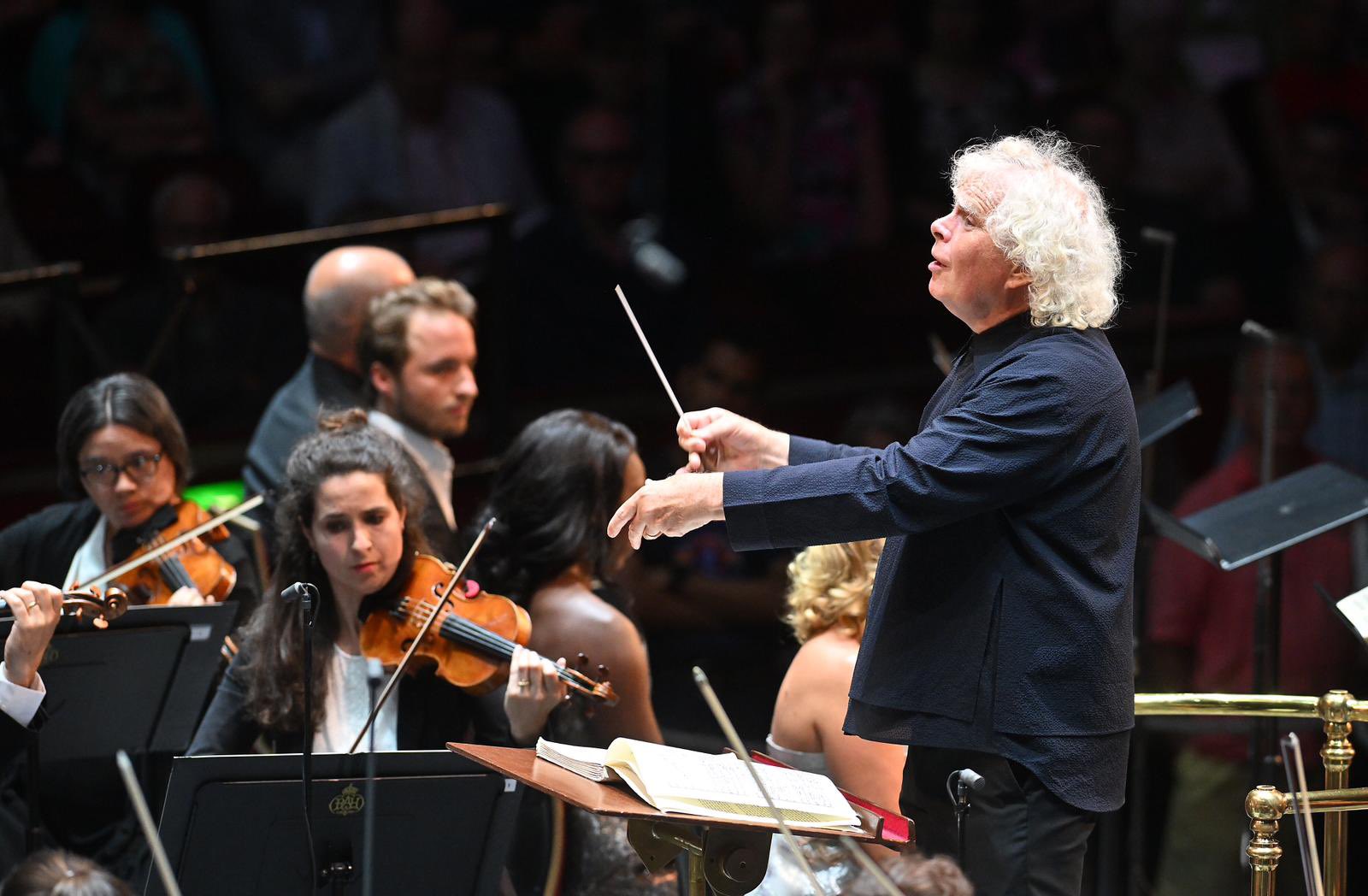Schumann’s Peri is a fairly rare bird in the concert hall these days, but in the nineteenth century she was apparently so esteemed that a choral society was founded in Scotland to put on a performance every year. Thomas Moore’s sentimental text probably worked against the work’s acceptance by twentieth-century audiences (in a plot twist worthy of Vincent Crummles, the Peri gains admittance to Paradise by offering a tear collected from a repentant sinner who sees a child praying), and in the twenty-first century it may yet be vulnerable to cancellation on account of its Orientalism. Nonetheless it has always had its champions, and Simon Rattle is one of them, having conducted performances both in Germany and the UK. This performance was its premiere at the Proms.
Rejecting an operatic treatment, Schumann sought to create “an entirely new genre for the concert hall”. The structure is innovative for the time, with arias, recitatives and choruses segueing into each other without a break, and the varied and delicate scoring belies Schumann’s reputation as a clumsy orchestrator. The most inspired music heralds the moment of redemption at the end: a rapt passage of counterpoint for muted horn and strings recalling Schumann’s beloved Bach. In general, though, the work is charming rather than compelling, with pleasant, song-like aria following pleasant, song-like aria, a general mood of subtropical languor, and only the character of the Peri herself gaining much individuality.
Lucy Crowe took that part, and her warm, expressive soprano was one of the great pleasures of the evening. Catching the many moods of the character, grief-stricken, hopeful or joyous, she carried the long and arduous role effortlessly from first note to last. Making his second Proms appearance after Mendelssohn’s Elijah last month, Andrew Staples was on narrator duties, and he invested a part consisting largely of recitative with well-sustained musical line. Magdalena Kožená was an authoritative Angel, though she only seemed to sing to the right-hand side of the hall. Linard Vrielink was eloquent and affecting in the role of the Young Man, actually two young men, as his character died in battle in the first part and then succumbed to plague in the second. In this he was joined by soprano Jeanine De Bique as the lover who expires with him having loyally refused to practise social distancing. (Ironically, your reviewer came away from this performance with a dose of the contemporary plague, caught, I am almost certain, from a stentorian cougher to my right). The quartet was completed by Florian Boesch, formidable as the tyrant Gazna and deeply expressive (though not always at one with the conductor) as the repentant reprobate.
There was certainly no doubt about Rattle’s rapport with the wonderful orchestra he has conducted for six years. They responded to every nuance as he shaped the performance with real affection. The 150-strong chorus were full-voiced and sonorous, but also light and delicate when required. But it was Crowe’s evening more than anything, and the work closed with her Peri soaring ecstatically over the choir of blessed spirits, giving us all a much-needed glimpse of Paradise.
William Hale.

